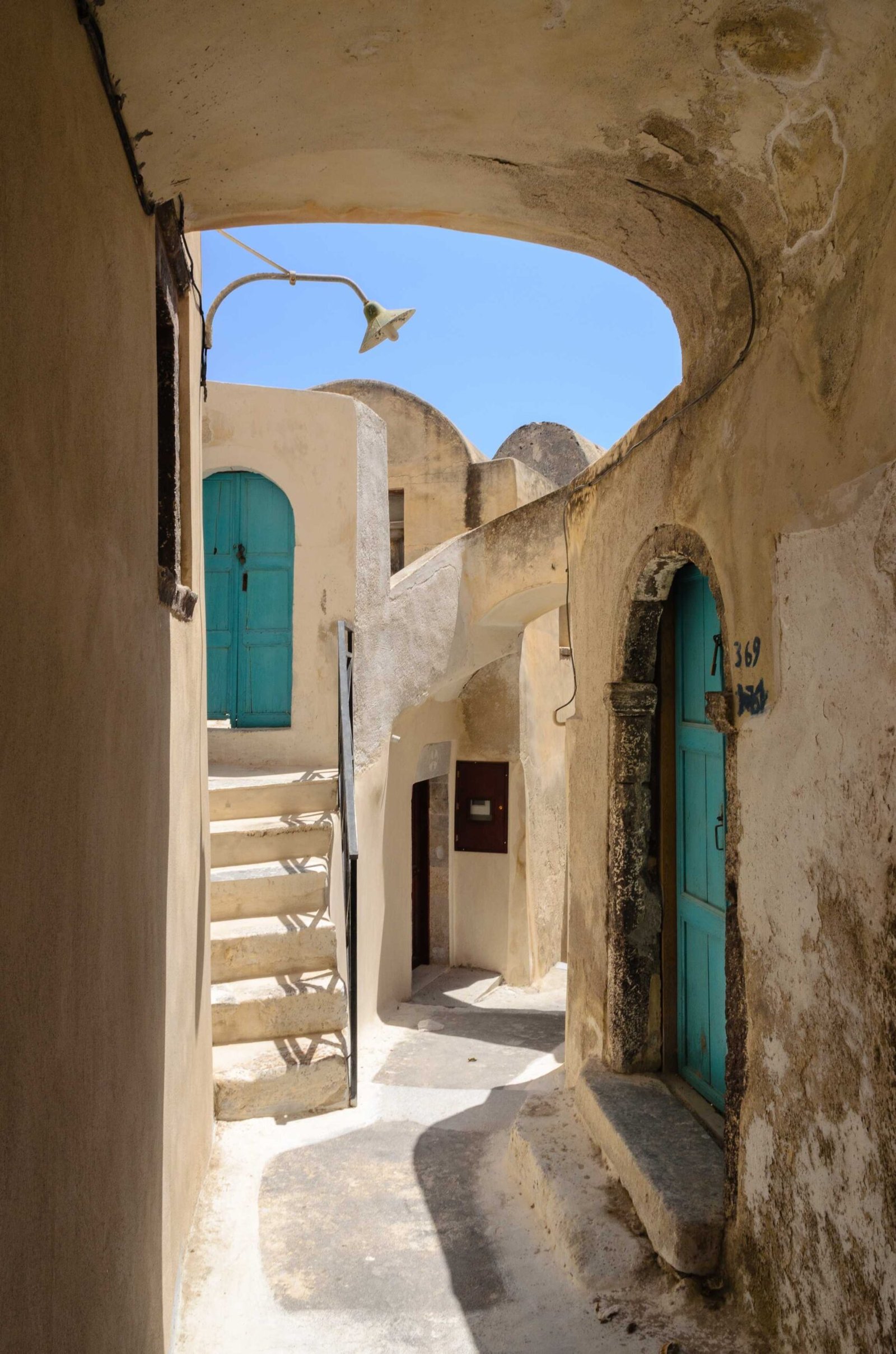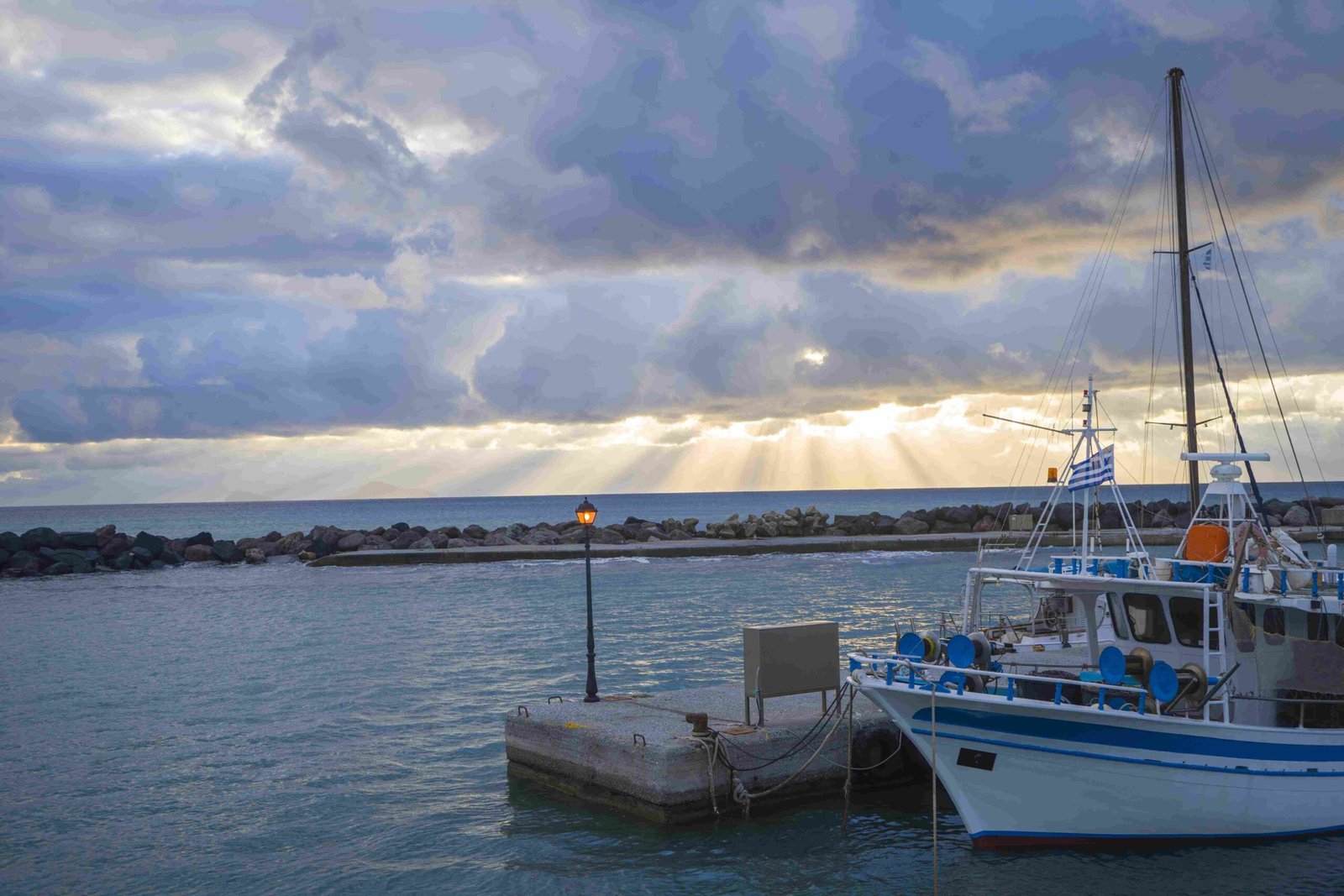Santorini, a picturesque Greek island, is renowned for its exceptional Assyrtiko wine. This indigenous grape variety thrives in the island’s unique volcanic soil, producing wines with high acidity, distinct minerality, and remarkable aging potential. Santorini’s Assyrtiko wines are characterized by their crisp citrus flavors, floral notes, and a signature salty streak that reflects the island’s terroir. The island is also famous for its sweet Vinsanto wine, made from sun-dried grapes, offering a rich, honeyed flavor profile.
What Makes Assyrtiko Wine So Special?

Assyrtiko wine from Santorini stands out for several reasons:
- High Acidity: Typically ranging from 7-9 g/L, this acidity level is crucial for maintaining freshness and structure.
- Unique Flavor Profile: Exhibits citrus flavors (lemon and lime), floral notes (orange blossom and jasmine), and a distinctive minerality.
- Excellent Aging Potential: Can age for 5 to 10 years or more, developing complex aromas and flavors over time.
- Terroir Expression: The volcanic soil imparts a characteristic minerality and saltiness to the wine.
How Does Santorini’s Volcanic Soil Influence Its Wines?

The volcanic soil of Santorini plays a crucial role in shaping the character of its wines:
- Rich in minerals but low in potassium and clay
- Contributes to the wine’s high acidity and minerality
- Protects vines from diseases
- Helps maintain low yields, resulting in concentrated wines
This unique terroir creates an environment where Assyrtiko grapes can thrive and develop their distinctive characteristics.
What Are the Tasting Notes of Santorini’s Assyrtiko Wine?
When tasting Santorini’s Assyrtiko wine, you can expect:
| Aspect | Description |
|---|---|
| Aroma | Citrus fruits, white flowers, mineral notes |
| Flavor | Lemon, lime, orange blossom, jasmine |
| Texture | Crisp, high acidity, medium-bodied |
| Finish | Long, with a distinctive salty minerality |
As the wine ages, it may develop additional aromas and flavors of ripe fruits and honey, while maintaining its intense minerality.
What Is Vinsanto and How Is It Different from Assyrtiko?
Vinsanto is another renowned wine from Santorini, distinct from Assyrtiko in several ways:
- Production Method: Made from sun-dried Assyrtiko and other local grapes
- Sweetness: High sugar content, typically around 200 g/L
- Flavor Profile: Rich, honeyed flavors with notes of dried fruits and nuts
- Aging Potential: Often described as “eternal” due to its long-lasting nature
Vinsanto is a dessert wine that showcases another facet of Santorini’s winemaking expertise.
How Can Visitors Experience Santorini’s Wine Culture?
Santorini offers numerous opportunities for wine enthusiasts to explore its viticultural heritage:
- Winery Tours: Many local wineries offer tours and tastings, including Gai’a Wines, Vassaltis, and Ktima Tselepos.
- Costs: Wine tastings and tours typically range from €15 to €30 per person.
- Accessibility: Most wineries are accessible by car or public transportation.
- Seasonal Events: The island hosts events like the Santorini Wine Festival, celebrating local wine culture.
These experiences provide insights into Santorini’s unique winemaking practices and the history of wine production on the island.
What Are the Best Food Pairings for Santorini Wines?
To fully appreciate Santorini’s wines, consider these food pairings:
- Assyrtiko:
- Fresh seafood dishes
- Greek salads with feta cheese
- Grilled vegetables
-
Light poultry dishes
-
Vinsanto:
- Blue cheeses
- Dried fruits and nuts
- Rich desserts like baklava
- As an aperitif or digestif
The high acidity and minerality of Assyrtiko make it versatile for pairing, while Vinsanto’s sweetness complements desserts and strong cheeses.
How Has Climate Change Affected Santorini’s Wine Production?
Climate change poses challenges to Santorini’s wine industry:
- Increasing temperatures can lead to earlier harvests
- Changes in rainfall patterns may affect grape quality
- Rising sea levels could impact coastal vineyards
However, Santorini’s winemakers are adapting by:
- Adjusting harvest times
- Implementing water conservation techniques
- Exploring heat-resistant grape varieties
These efforts aim to preserve the unique character of Santorini’s wines in the face of environmental changes.
In conclusion, Santorini is known for its exceptional Assyrtiko wines, characterized by high acidity, unique minerality, and excellent aging potential. The island’s volcanic soil, traditional winemaking methods, and the indigenous Assyrtiko grape variety combine to create wines that are truly representative of Santorini’s terroir. Whether enjoying a crisp Assyrtiko or a sweet Vinsanto, wine enthusiasts can experience the essence of this remarkable Greek island in every glass.
References:
1. https://www.decanter.com/learn/assyrtiko-wine-taste-of-ask-decanter-394036/
2. https://www.wineenthusiast.com/culture/wine/santorini-assyrtiko/
3. https://winefolly.com/grapes/assyrtiko/

